The Greek Orthodox Church Calendar for 2025: A Comprehensive Guide
Related Articles: The Greek Orthodox Church Calendar for 2025: A Comprehensive Guide
- September 2025 Calendar: Kalnirnay Panchang
- Calendario 2025 Álava: A Comprehensive Guide To The Basque Country’s Rich Heritage And Vibrant Culture
- Islamic Calendar 2025 Pakistan: A Comprehensive Guide
- October 2025 Calendar Starting Monday
- ASD Calendar 2025-24: A Comprehensive Guide For Students With Autism Spectrum Disorder
Introduction
With great pleasure, we will explore the intriguing topic related to The Greek Orthodox Church Calendar for 2025: A Comprehensive Guide. Let’s weave interesting information and offer fresh perspectives to the readers.
Table of Content
Video about The Greek Orthodox Church Calendar for 2025: A Comprehensive Guide
The Greek Orthodox Church Calendar for 2025: A Comprehensive Guide

The Greek Orthodox Church follows a unique calendar that differs from the Gregorian calendar used by most of the world. The Greek Orthodox calendar is based on the Julian calendar, which was introduced by Julius Caesar in 46 BC. The Julian calendar is a solar calendar, meaning that it is based on the Earth’s orbit around the sun. However, the Julian calendar is not as accurate as the Gregorian calendar, and it gradually drifts away from the true solar year.
The difference between the Julian and Gregorian calendars is 13 days. This means that the Greek Orthodox Church celebrates Christmas on January 7th, while the rest of the world celebrates it on December 25th. The Greek Orthodox Church also celebrates Easter on a different date than the rest of the Christian world. In 2025, Easter will be celebrated on April 20th by the Greek Orthodox Church, while the rest of the Christian world will celebrate it on April 13th.
The Greek Orthodox Church calendar is divided into two parts: the fixed cycle and the movable cycle. The fixed cycle includes the feasts and commemorations that always fall on the same date each year. The movable cycle includes the feasts and commemorations that move from year to year.
The most important feast in the Greek Orthodox Church calendar is Easter. Easter is the celebration of the resurrection of Jesus Christ from the dead. Easter is preceded by a 40-day period of fasting and prayer known as Lent. Lent begins on Clean Monday, which is the first Monday after the Sunday of Forgiveness.
Other important feasts in the Greek Orthodox Church calendar include:
- Christmas (January 7th)
- Theophany (January 6th)
- Annunciation (March 25th)
- Palm Sunday (the Sunday before Easter)
- Good Friday (the Friday before Easter)
- Holy Saturday (the Saturday before Easter)
- Pentecost (50 days after Easter)
- Dormition of the Theotokos (August 15th)
- Exaltation of the Holy Cross (September 14th)
The Greek Orthodox Church calendar is a rich and complex tradition that has been passed down for centuries. The calendar is a reminder of the Church’s ancient roots and its unique identity.
Here is a more detailed look at the Greek Orthodox Church calendar for 2025:
January
- 1st: New Year’s Day
- 6th: Theophany
- 7th: Christmas
February
- 2nd: Presentation of the Lord
- 14th: Sunday of the Prodigal Son
- 21st: Sunday of the Publican and the Pharisee
- 28th: Clean Monday (beginning of Lent)
March
- 8th: Sunday of Orthodoxy
- 15th: Sunday of the Cross
- 22nd: Sunday of St. Gregory Palamas
- 25th: Annunciation
April
- 5th: Palm Sunday
- 10th: Good Friday
- 11th: Holy Saturday
- 12th: Easter Sunday
- 19th: Second Sunday of Easter (Renewal of Baptism)
- 26th: Third Sunday of Easter (Myrrhbearers)
May
- 3rd: Fourth Sunday of Easter (Paralytic)
- 10th: Fifth Sunday of Easter (Samaritan)
- 17th: Sixth Sunday of Easter (Blind Man)
- 24th: Seventh Sunday of Easter (Ascension)
- 31st: Pentecost
June
- 7th: First Sunday after Pentecost (All Saints)
- 14th: Second Sunday after Pentecost (All Saints)
- 21st: Third Sunday after Pentecost (Holy Fathers)
- 28th: Fourth Sunday after Pentecost (Prophets)
July
- 5th: Fifth Sunday after Pentecost (Apostles)
- 12th: Sixth Sunday after Pentecost (Martyrs)
- 19th: Seventh Sunday after Pentecost (Archangels)
- 26th: Eighth Sunday after Pentecost (Baptist)
August
- 2nd: Ninth Sunday after Pentecost (Transfiguration)
- 9th: Tenth Sunday after Pentecost (Icon)
- 15th: Dormition of the Theotokos
- 22nd: Eleventh Sunday after Pentecost (Holy Fathers)
- 29th: Twelfth Sunday after Pentecost (Prophets)
September
- 6th: Thirteenth Sunday after Pentecost (Apostles)
- 13th: Fourteenth Sunday after Pentecost (Martyrs)
- 20th: Fifteenth Sunday after Pentecost (Archangels)
- 27th: Sixteenth Sunday after Pentecost (Baptist)
October
- 4th: Seventeenth Sunday after Pentecost (Transfiguration)
- 11th: Eighteenth Sunday after Pentecost (Icon)
- 18th: Nineteenth Sunday after Pentecost (Holy Fathers)
- 25th: Twentieth Sunday after Pentecost (Prophets)
November
- 1st: Twenty-first Sunday after Pentecost (Apostles)
- 8th: Twenty-second Sunday after Pentecost (Martyrs)
- 15th: Twenty-third Sunday after Pentecost (Archangels)
- 22nd: Twenty-fourth Sunday after Pentecost (Baptist)
- 29th: Twenty-fifth Sunday after Pentecost (Transfiguration)
December
- 6th: Twenty-sixth Sunday after Pentecost (Icon)
- 13th: Twenty-seventh Sunday after Pentecost (Holy Fathers)
- 20th: Twenty-eighth Sunday after Pentecost (Prophets)
- 25th: Christmas
- 31st: New Year’s Eve

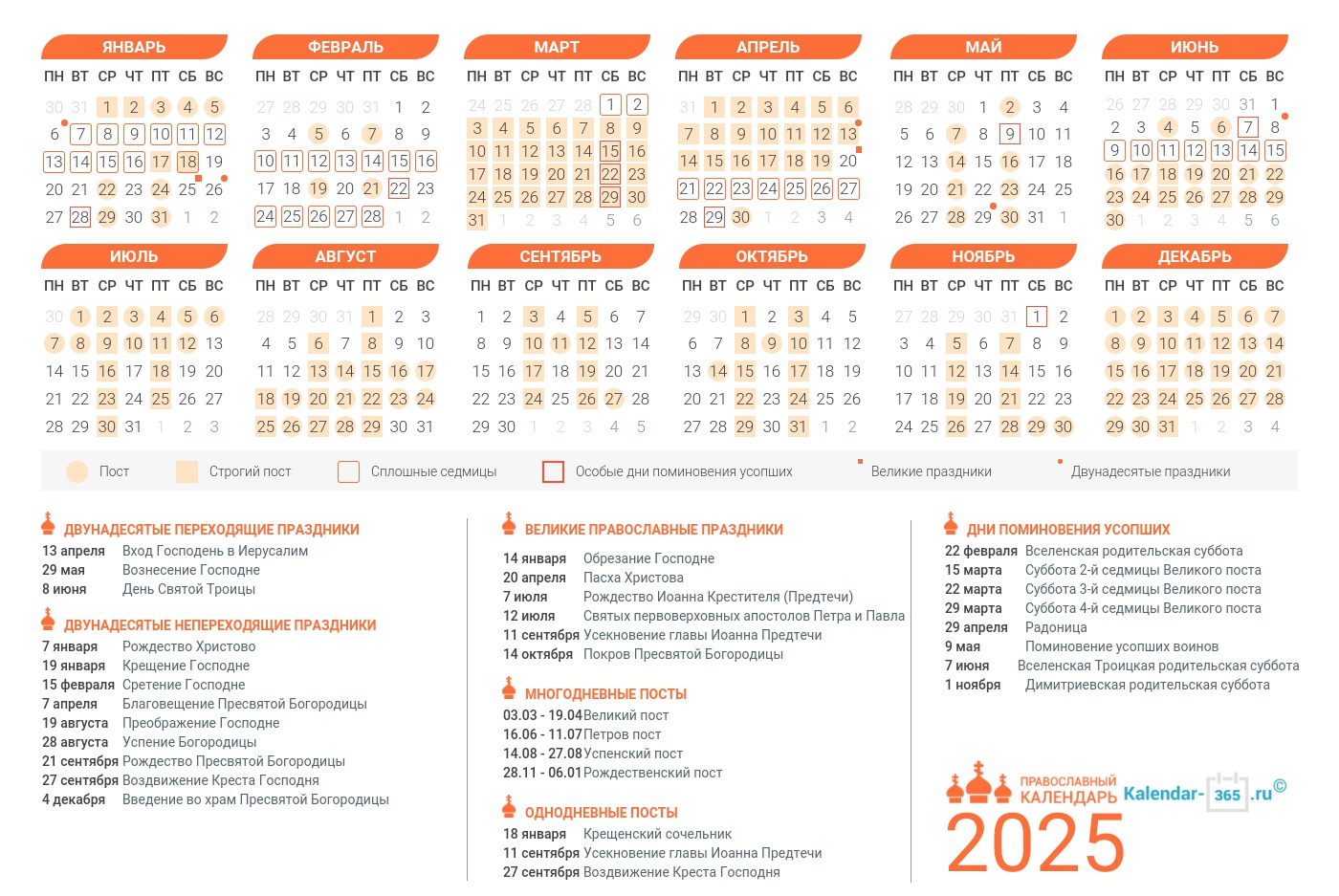
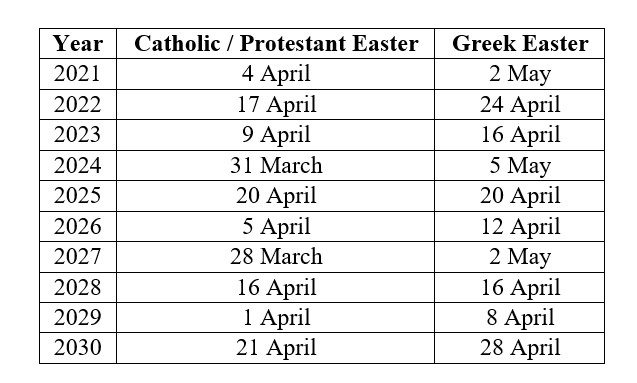

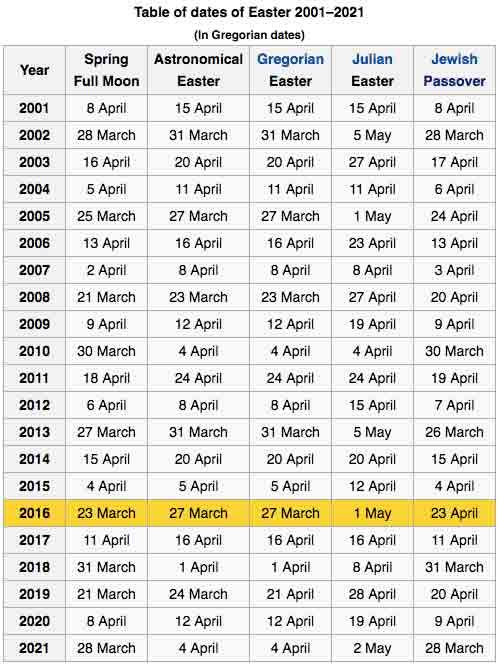
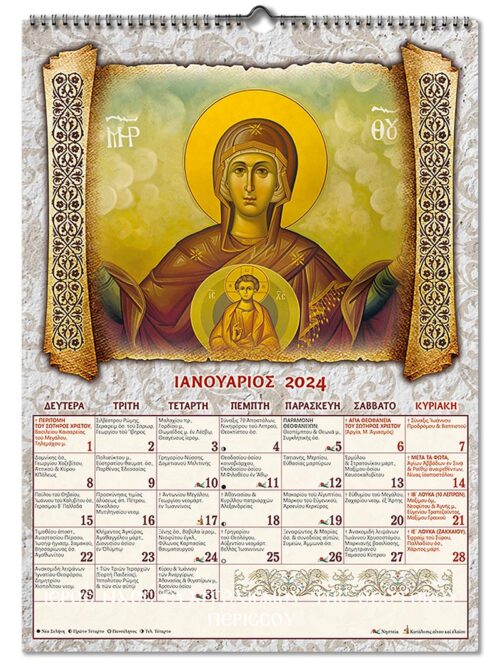
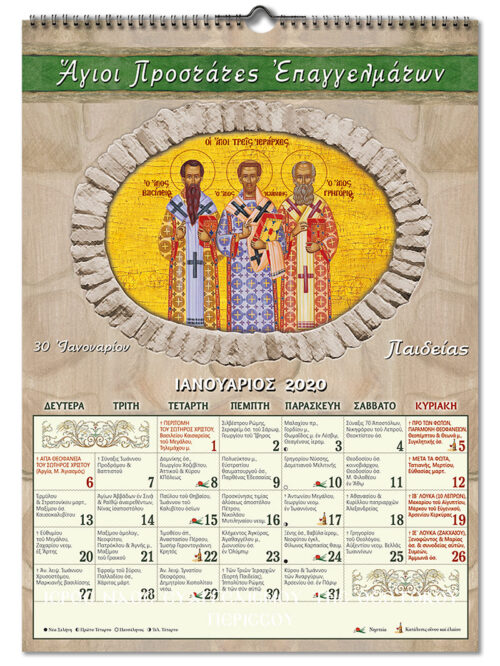
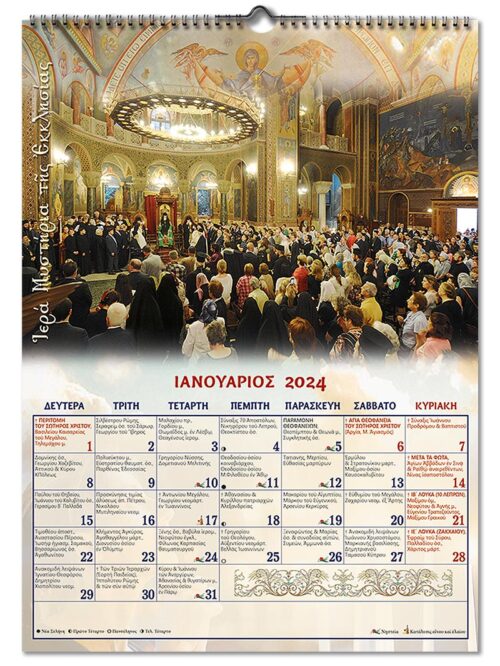
Closure
Thus, we hope this article has provided valuable insights into The Greek Orthodox Church Calendar for 2025: A Comprehensive Guide. We thank you for taking the time to read this article. See you in our next article!